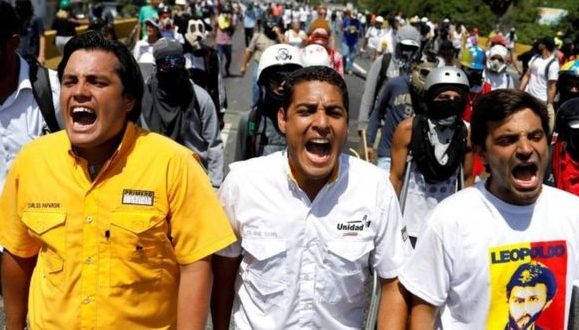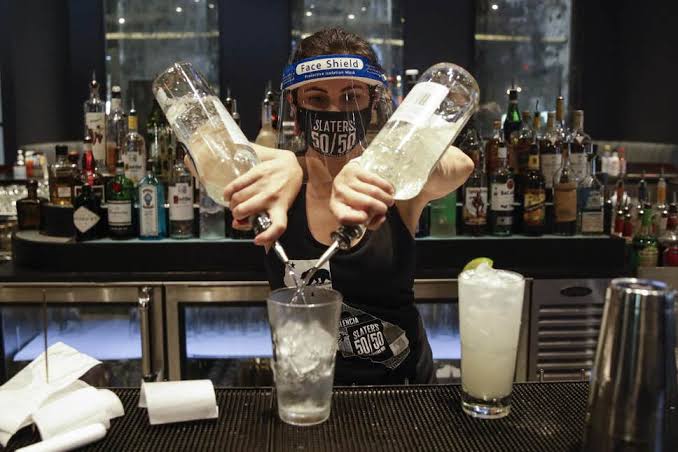Venezuelan opposition legislator, José Manuel Olivares, has fled the country, accusing the government of threatening him and several family members.
In an open letter, Mr. Olivares said that in recent weeks secret police agents approached him, his wife and his brother saying they would be persecuted unless he stepped away from politics.
“My family’s wellbeing comes first,” said Mr. Olivares.
Several senior opposition leaders have left Venezuela over the past year.
They say intimidation and harassment by President Nicolás Maduro has made them fear for their lives.
Mr. Maduro was re-elected in May to a new six-year term.
The opposition was weakened by the arrests or self-imposed exile of many of its leaders.
Most anti-Maduro parties boycotted the vote.
The president blames Venezuela ‘s elite and what he terms imperialist forces led by the United States for the country’s economic crisis.
This week, the government announced it was cutting five zeroes from the currency, the bolívar.
Critics say this will have little effect in curbing the world’s highest inflation rate, estimated at 46,000% a year.
Mr. Olivares, who is also a doctor, said his family was taken by surprise by the recent levels of intimidation from the secret police, Sebin.
“We were not prepared for this whether politically, financially or emotionally,” he wrote from Colombia.
“They were now even harassing my wife, who gave birth only a few months ago.”
He vowed to continue his political struggle against the Maduro administration from abroad, alongside other dissidents.
“I will highlight the problems faced by patients in the health system, including the chronic shortage of medicines.
“And I will continue to campaign for the opening of a humanitarian channel to bring food and medicine to the Venezuela people,” Mr. Olivares wrote in his letter, which was published on Twitter.
Juana Rivas: Court jails mother who hid with sons in custody battle
A Spanish court has jailed a woman for five years for going into hiding with her two sons rather than hand them to the father, whom she accused of abuse.
Juana Rivas has also been stripped of custody rights for six years and told to pay hefty legal costs.
Spanish politicians and women’s groups have criticised the verdict.
The long-running custody battle for the boys – now aged 12 and four – has become a rallying point in Spain’s battle against gender violence.
She took the boys from the family home in Italy in 2016, and travelled to Spain under the pretext of visiting family.
Instead of returning, she lodged a complaint in Spain alleging domestic abuse and later defied Spanish court orders to return the boys to their father.
“A woman running away from terror to protect her children can’t be deemed abduction,” she said last year.
Her actions became a social media sensation in Spain, where #JuanaEstáEnMiCasa (Juana is in my house) was a major trend as she avoided authorities.
She eventually turned herself in and the children were reunited with their father.
The court in the southern city of Granada said Rivas had no proof of domestic violence and had illegally taken her children from their father.
She had “exploited the argument of abuse” and had carried out “child abduction,” the judgement said.
Her former partner, Italian Francesco Arcuri, has a previous conviction for violence against Ms. Rivas.
But despite this the court said there was no evidence of mistreatment since then and an assessment of the oldest child showed no signs of psychological trauma consistent with abuse.
Rivas’ lawyer has called the judgement a “failure of the judicial system” and indicated she would appeal against the verdict.
Spain’s Deputy Prime Minister Carmen Calvo has said that Rivas will not be jailed until the sentence is confirmed.
“The interests of the two children must be protected, even in these moments,” she said.
Antonio Maíllo, head of a left-wing federation of parties in the southern Andalucia region, said the verdict was “barbaric” and set a worrying precedent.
“This country has changed but the judiciary is carrying on with outmoded parameters,” he said.
The president of the Progressive Women’s Foundation, Yolanda Besteiro, told Spain’s Efe news agency that the ruling was disproportionate “because the situation of mistreatment was not taken into account.”
She said the ruling “demonstrates the lack of empathy and ignorance of what gender violence is and how abusers behave.”
Some groups are preparing demonstrations, in a move reminiscent of the widespread protests over the infamous “wolf pack” sexual assault case in Pamplona.
Mr. Arcuri denies any abuse of either Rivas or the children and says he has been the victim of a media campaign.
READ ALSO: U.S. jails Nigerian 14 years for scams, Igbinedion’s son-in-law on trial
He has a previous conviction for violence against Rivas on one occasion in 2009 – but he now says he only admitted to the charge to avoid a lengthy legal battle and retain visiting rights with his son.
The couple reunited after that incident and had a second son.
Mr. Arcuri’s former partner of 10 years also came to his defence last year, telling Spanish media she did not believe the abuse allegations.
Gang puts $70,000 bounty on drug-sniffing dog
A Colombian gang has put a $70,000 bounty on Sombra, the drug-sniffing dog.
Her talent for sniffing out drugs has led to the capture of at least 245 people and the seizure of 9 tons of cocaine from the powerful Urabeños gang in Colombia.
But now Sombra (Shadow, in English), a 6-year-old German shepherd who is incredibly popular among children and adults alike, is in danger.
The Urabeños mafia has put a bounty of 200 million pesos ($70,000) on her head, according to Colombian police, so the dog had to be moved to Bogota’s El Dorado airport over fears for her safety.
Along with her usual handler, Jose Rojas, Sombra is now escorted by other officers to keep an eye on her, police said.
Over the past three years, Sombra has become “the torment of Otoniel, seizing 9 tons of cocaine,” anti-narcotics police said in a tweet.
Dairo Antonio Úsuga, alias “Otoniel,” is the head of the Urabeños, one of Colombia’s most powerful criminal groups and one of the country’s most wanted men.
“Our German shepherd, Sombra, has participated in almost 300 operations,” Col. Tito Castellanos, the deputy director for the anti-narcotics police, told Colombian news agency RCN.
She has already won two K-9 Medals of Courage for her valour and might get a third one this year, he said.










